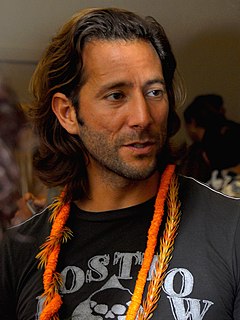A Quote by Luther Burbank
Heredity: the traits that a disobedient child gets from the other parent.
Related Quotes
The disobedient child is continuously condemned. The obedient child is, on the other hand, continuously praised. But have you heard of any obedient child having become world-famous in any dimension of creativity? Have you heard of any obedient child who has attained the Nobel prize for anything - literature, peace, science? The obedient child becomes just the common crowd. All that is added to existence is added by the disobedient.
A conscious parent is not one who seeks to fix her child or seek to produce or create the 'perfect' child. This is not about perfection. The conscious parent understands that is journey has been undertaken, this child has been called forth to 'raise the parent' itself. To show the parent where the parent has yet to grow. This is why we call our children into our lives.
The traditional paradigm of parenting has been very hierarchical, the parent knows best and very top down. Conscious parenting topples [this paradigm] on its head and creates this mutuality, this circularity where both parent and child serve each other and where in fact, perhaps, the child could be even more of a guru for the parent .... teaching the parent how the parent needs to grow, teaching the parent how to enter the present moment like only children know how to do.
I shall borrow two words used for a slightly different purpose by the great demographer Alfred Lotka to distinguish between the two systems of heredity enjoyed by man: endosomatic or internal heredity for the ordinary or genetical heredity we have in common with animals; and exosomatic or external heredity for the non-genetic heredity that is peculiarly our own - the heredity that is mediated through tradition, by which I mean the transfer of information through non-genetic channels from one generation to the next.
Compared to other parents, remarried parents seem more desirous of their child's approval, more alert to the child's emotional state, and more sensitive in their parent-child relations. Perhaps this is the result of heightened empathy for the child's suffering, perhaps it is a guilt reaction; in either case, it gives the child a potent weapon--the power to disrupt the new household and come between parent and the new spouse.
Without a sense of the shame or guilt of his or her action, the child will only be hardened in rebellion by physical punishment. Shame (and praise) help the child to internalize the parent's judgment. It impresses upon the child that the parent is not only more powerful but also right. Like the Puritans, Locke (in 1690), wanted the child to adopt the parent's moral position, rather than simply bow to superior strength or social pressure.
In considering the ledger equal, understand the greatest gift you have given your parents is the opportunity to raise you. The things a child gets from parents can't compare to the things a parent gets from raising a child. Only by experiencing this can you understand the degree to which children give meaning to parents' lives.






































